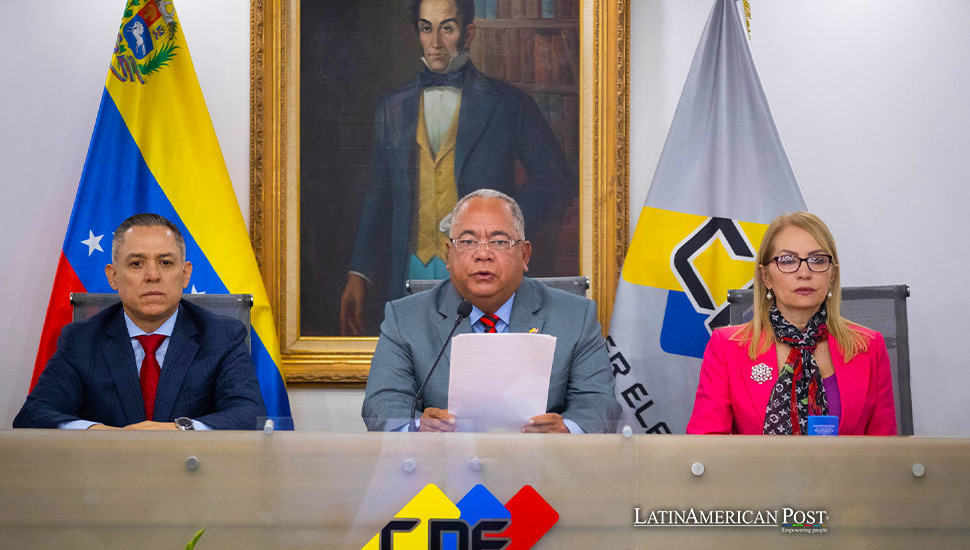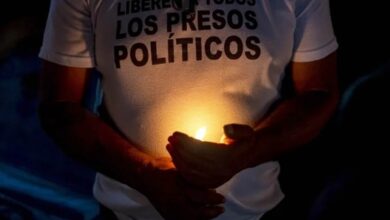Venezuela’s Precipitous Path to Early Elections with Democracy on the Line

In an unexpected turn, Venezuela accelerates its presidential election schedule to July 28 amidst controversies and international scrutiny, casting a shadow over democracy and stirring a wave of implications across Latin America.
Venezuela, a nation that has been a focal point of political tumult and economic crisis in Latin America, has announced a sudden acceleration of its presidential election timeline to July 28, which has sent ripples through the region. This move, announced by Venezuela’s National Electoral Council (CNE), places the nation’s democracy and the international community’s response under a magnifying glass, particularly as President Nicolás Maduro seeks re-election amidst allegations of financial misconduct against his primary opponent, María Corina Machado.
Nicolás Maduro, who has held the reins of power for 11 years in a tenure marked by economic collapse and human rights criticisms, is expected to run for re-election. His governance has been characterized by a tight grip on power amidst an ever-deepening crisis that has led to mass migration and widespread poverty. Maduro’s expected candidacy comes when Venezuela’s political landscape is mired in controversy, and opposition voices are suppressed.
The Opposition’s Struggle
María Corina Machado, a prominent figure in the Venezuelan opposition, finds herself barred from holding office due to accusations of financial misconduct, charges she vehemently denies. Machado’s situation epitomizes the Venezuelan government’s strategy of quashing political dissent through judicial maneuvers, limiting the electoral field to pro-government candidates. Despite the ban, Machado’s resolve to continue her campaign underscores the opposition’s desperation and determination to challenge Maduro’s rule.
The announcement of early elections questions the legitimacy of the electoral process in Venezuela. The 2018 elections, which secured Maduro’s current term, were widely criticized by the international community as neither free nor fair, casting a long shadow over the upcoming polls. The agreement between the government and the opposition reached last year aimed to ensure a credible electoral process in 2024. Still, it now seems jeopardized by the sudden shift in the election timeline.
International Observers and Sanctions
The role of international observers and the impact of international sanctions emerge as critical factors in the unfolding electoral drama. Following the 2018 elections, the United States imposed sanctions on Venezuela’s oil sector, a significant blow given the country’s reliance on oil exports. Following the agreement for fair elections, the easing of these sanctions was seen as a step toward alleviating Venezuela’s economic hardships. However, with the early election date set and the US threatening to reinstate sanctions after the ban on Machado, the delicate balance of international diplomacy and economic relief is at risk.
Venezuela’s early elections do not occur in a vacuum but have profound implications for Latin America. The region, characterized by its diverse political landscapes and shared economic challenges, watches closely as Venezuela navigates its electoral process. The crisis in Venezuela has already driven more than seven million Venezuelans to emigrate, many seeking refuge in neighboring Latin American countries. This mass migration has placed a strain on regional resources and has elevated the crisis to a matter of regional stability and humanitarian concern.
Venezuela’s decision to hold early presidential elections is a litmus test for the nation’s democracy and reflects broader challenges facing Latin American democracies. The suppression of opposition candidates, the legitimacy of the electoral process, and the role of international sanctions are issues that resonate beyond Venezuela’s borders, touching on the fundamental principles of democratic governance and human rights.
The Path Forward
The path forward is still being determined as Venezuela gears up for an early electoral showdown. The international community, particularly Latin American nations, faces the challenge of responding effectively to Venezuela’s political developments. The need for a robust and united regional approach to support democratic principles and human rights in Venezuela has never been more critical. As the election date approaches, the eyes of the world remain fixed on Venezuela, hoping for a resolution that brings stability, democracy, and relief to its people.
Also read: Geopolitical Chess Unravels as U.S. Boosts Guyana’s Military Amid Venezuela Territorial Dispute
Venezuela’s abrupt move to hold presidential elections in July represents a pivotal moment for the nation and the entire Latin American region. The challenges of ensuring a fair and accessible electoral process and the international implications of the outcome underscore the complexities of navigating the path toward democracy in a country marred by political strife and economic despair. As Venezuela stands at this crossroads, the international community’s collective response and the Venezuelan people’s resilience will determine the future of democracy and stability in the region.




